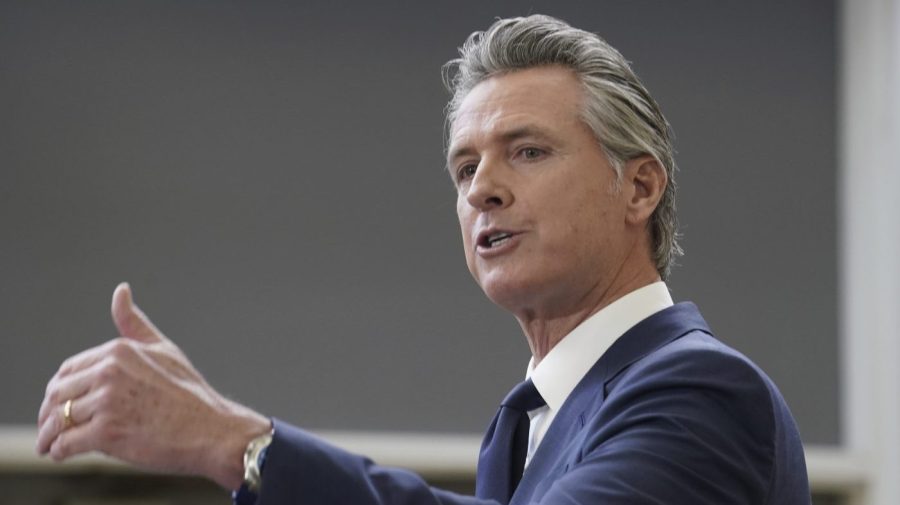
California Assemblymember Jesse Gabriel (D) on Wednesday introduced legislation that would establish state-mandated drinking water standards for toxic “forever chemicals,” amid fears that existing federal limits could be scrapped by the Trump administration.
The AB 794 bill would direct the State Water Resources Control Board to adopt emergency regulations that would set limits at least as protective as the “federal regulation that was in effect on January 19, 2025, regardless of whether the requirements were repealed or amended to be less stringent.”
The emergency regulations would need to be issued by Jan. 1, 2026, with formal rulemaking to follow and “to lock in place the protections that currently exist in federal law,” Gabriel said at a Wednesday webinar.
“Californians shouldn’t have to worry that their drinking water has been contaminated by toxic forever chemicals that are linked to deadly cancers and other serious health harms,” the assemblymember added.
The protections in question pertain to the first-ever national drinking water standards for cancer-causing per- and polyfluoroalkyl substances (PFAS) — limits that were established by the Biden administration last April.
Notorious for their inability to break down in the body or in the environment, PFAS have been linked to a variety of cancers, reproductive issues and other serious illnesses. They are present in many household products, including waterproof apparel, nonstick pans and certain cosmetics.
The Biden-run Environmental Protection Agency set legal limits for two of the most toxic types of PFAS, called PFOA and PFOS, at 4 parts per trillion for either compound. For reference, a part per trillion is equivalent to a one drop of water in 20 Olympic-sized pools.
For three other types of PFAS — PFNA, PFHxS and GenX — the EPA set the bar at 10 parts per trillion, while also creating a threshold for mixtures of two or more of GenX, PFNA, PFHxS and another compound called PFBS.
“This was a great and historic step forward, part of the Biden administration’s Cancer Moonshot and a really big and important step to protect our communities from toxic PFAS,” Gabriel said on Wednesday.
“Unfortunately, we have seen recently efforts by corporate polluters to challenge the federal standards,” the assemblymember continued. “They’re trying to weaken and roll back these protections that are so essential for our communities.”
Uncertainty abounds as to whether the Trump-led EPA will seek to repeal the federal drinking water standards. The administration has already withdrawn a separate, but still pending, Biden-era plan that would have established discharge limits for PFAS in the industrial sector.
As he introduced the new bill , Gabriel acknowledged that “California already lags behind 11 other states that have taken action at the state level to protect their residents and their communities.”
“We want to make sure that California joins that group of states, and that we are stepping up to make sure that our kids and our communities are protected from PFAS,” he said.
“We’re going to do this so that we can protect our communities, irrespective of what happens at the federal level,” Gabriel added, noting that he and his colleagues intend to follow “the best available science while also preserving our ability, if necessary in the future, to strengthen protections.”
Juliana Melo, an associate professor in obstetrics and gynecology at the University of California Davis, emphasized the importance of enacting the bill, describing PFAS as “an overlooked threat to reproductive health.”
PFAS exposure, she explained at the webinar, has been linked to an increased risk of miscarriage, preterm birth, low birth weight, pregnancy complications and preeclampsia.
“These chemicals disrupt hormone function, which is essential for healthy pregnancies and reproductive well-being,” Melo said.
“The EPA drinking water standards, finalized last year, were a crucial step in protecting public health, but now there’s a real risk that these protections could be weakened or eliminated,” she added.
Melissa Romero, policy advocacy director for California Environmental Voters, stressed that Californians “deserve a solution that prioritizes their health and that will withstand the current president without minimum standards.”
“Our health is at risk because of this inevitable rolling back of essential PFAS regulations,” Romero added.
Echoing these sentiments, Scott Faber, senior vice president at the Environmental Working Group, warned that “all of our environmental protections are under assault.”
“Polluters are not just putting pressure on the EPA to weaken or rescind the drinking water standard, they are literally running the EPA,” Faber said. “California has no time to waste.”
Other states that have already enacted state-level limits on PFAS in drinking water include Maine, Massachusetts, Michigan, New Hampshire, New Jersey, New York, Pennsylvania, Rhode Island, Vermont, Washington and Wisconsin.
Regardless of the presence of a federal standard, water utilities in those states will need to keep the amount of PFAS in their drinking water to a minimum, Faber noted.
“That’s not true for California,” he stated.
Gabriel expressed hopes that he would be able to work the bill through the state legislature soon and get it on Gov. Gavin Newsom’s (D) desk, so that California can join the other states that already have their own limits.
“This is about a commonsense approach with common sense regulation that everybody should be able to get behind,” Gabriel said. “Our kids and our families and our communities should not be exposed to known deadly and toxic chemicals in our water.”












